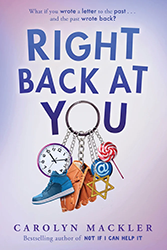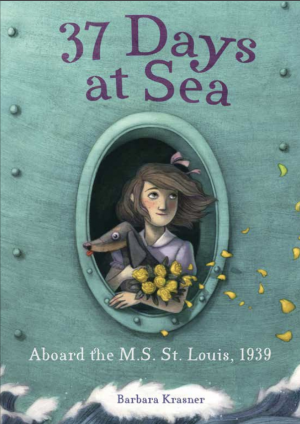Evie Steinberg’s family is plagued by instability. She is twelve years old, and she has never lived in one place for more than a year, since her mother’s career in journalism has repeatedly uprooted the family. Leah Stecher’s middle-grade novel blends reality and fantasy in its portrait of an anguished preteen. Equally painful and less easily explained than her mother’s domestic disruptions, Evies’ father is a “cryptozoologist,” who has dedicated his life to searching for non-existent creatures, like Big Foot, or the dragon-like Sharlie. On one expedition, Evie inadvertently prevented him from taking a photo of the latter, adding guilt to her range of troubling emotions.
One sustaining constant in Evie’s life is her Jewish summer camp, Shir Shalom, and her friendship with her fellow camper, Dara Freedman. Dara’s mother is a rabbi, and, in a notable departure from similar figures in other middle-grade books, she is a punitive perfectionist. She demands high achievement from her daughter, and she is incapable of empathizing with her husband’s anxiety disorder. The two friends, each with parents who fail to adequately understand their daughters’ needs, offer each other vital support. When Evie’s mother finally lands a long-term position in California, the change of circumstances seems promising, especially because Dara and Evie will be going to the same school.
But the Dara whom Evie meets in California is different — she’s dishonest, nasty, and cold toward her former best friend. Evie can’t emotionally accept the change in Dara, and she develops a supernatural explanation for her metamorphosis, involving the golem of Jewish folklore. Stecher’s adaptation of this legend assumes artistic license, and Evie’s golem departs in substantial ways from those in the traditional stories. Other mystical Jewish lore, like that of dybbuks, seems at play here, too. The portrait of a child so anguished that she weaves an elaborate tale to account for a friend’s betrayal is sad enough. The fact that the tale is rooted in her own Jewish identity is even more poignant.
Evie’s grandmother, Bubbe, lives near the Steinberg’s new home. If Rabbi Freedman embodies none of the ideal qualities of either Jewish motherhood or the rabbinate, Bubbe is also a response to stereotypes, but in a positive way. She offers Evie support and unconditional love, but with a realistic assessment of her granddaughter’s maladaptive response to distress. Rabbi Freedman’s speech at Dara’s opulent bat mitzvah party is spectacularly awful, a virtual celebration of parental narcissism. In contrast, Bubbe offers proof that adult authority figures can genuinely protect and guide the children who rely on them.
The novel’s resolution leaves some ambiguity about the fraudulent nature of Mr. Steinberg’s career. A parent neglecting a child by prioritizing work over family is a common, if sad, situation. In Evie’s life, the neglect is even worse, because her father’s preoccupation is so pointlessly chaotic. Fortunately, other people in Evie’s life find the courage to step in — without the help of a golem or any other mythical beings.
Emily Schneider writes about literature, feminism, and culture for Tablet, The Forward, The Horn Book, and other publications, and writes about children’s books on her blog. She has a Ph.D. in Romance Languages and Literatures.





